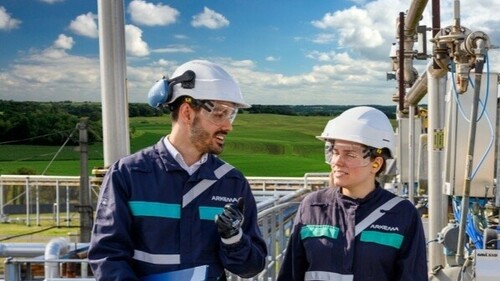Arkema will decarbonize acrylics production while optimizing competitiveness, at its Carling site, France
Arkema will implement by 2026 a new, patented purification technology at its production site in Carling, France, to improve the site’s operational efficiency and environmental footprint toward the highest standard. This investment will enable to reduce the site’s CO2 emissions by 20 %, thus contributing to the Group’s ambitious climate plan validated by SBTi on a 1.5°C trajectory by 2030.
The Carling facility is one of the major acrylic plants in Europe. It produces acrylic monomers used in performance coatings, adhesives, water treatment and other performance materials, that are increasingly required in electronics, electric vehicle batteries, new energies, 3D printing, as well as for home energy efficiency and living comfort improvement.
Combined with the progressive introduction of bio-renewable feedstocks, this lower energy intensive technology will enable Arkema to decarbonize further its acrylic monomers, specialty resins and additives offer and reinforce the Group’s position as a key partner to supply lower carbon footprint solutions in all of these markets.
This investment at the Carling facility represents a strong and long-term commitment to support our customers in their growth and sustainability journey.
After the introduction of bio-based acrylic monomers in 2022 using the mass balance approach, this new project at Carling is another key step to position Arkema as a leader in low carbon acrylic materials, and to help our customers reduce their Scope 3 emissions”
Richard Jenkins, senior vice-president, coating solutions: ‘This €130 million investment in a new purification process will lead to more energy efficient and lower carbon intensive operations, optimized resources and waste management, as well as a significant reduction of solvent use, while also enabling an incremental increase in capacity’
This strategic project is part of Arkema’s global decarbonization capital expenditure roadmap and has been partly funded by the French State as part of the France 2030 program, operated by ADEME, and funded by the European Union – NextGenerationEU.
Categories
Countries
Companies
Latest news
IPCEI funding approval paves way for progress at bp’s Lingen green hydrogen project
bp’s 100MW industrial-scale green hydrogen project awarded funding, provided jointly by BMWK and Lower-Saxony Government, as part of the European IPCEI (Important Projects of Common European intere...
German and state governments grant funding for large hydrogen projects by RWE at Lingen, Germany
Electrolyser plant in Lingen and hydrogen storage facility in Epe to be funded with a total of 619 million euros Rostock electrolysis project with RWE participation to receive 199 million euros F...
Europe’s first hydrogen fuelled power plant supporting the UK’s decarbonisation at Essars refinery in Stanlow, UK
EET Hydrogen Power announces the development of Europe’s first 100% hydrogen fuelled power plant. Hydrogen fuelled power is an essential part of decarbonisation of industry and the power system in ...
Boehringer Ingelheim produces its own green energy in Ingelheim, Germany
German Vice Chancellor and Federal Minister of Economics Robert Habeck inaugurates new biomass power plant Ingelheim site can cover 95% of its energy needs from renewable sources New power plant ...

